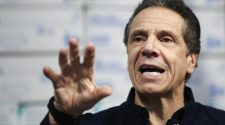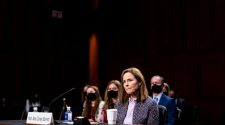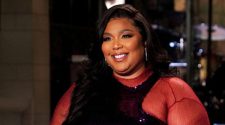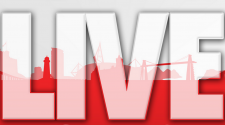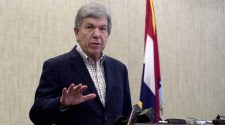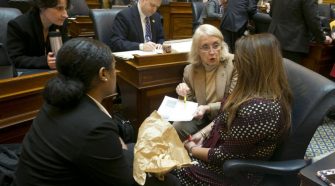with Tonya Riley
Top Facebook executives, including Mark Zuckerberg, spoke with civil rights leaders last night as the company confronts a wave of backlash over its decision not to moderate President Trump’s controversial posts.
But the roughly hour-long call, intended to show the company takes concerns from the black community seriously, only further inflamed tensions.
Color of Change President Rashad Robinson, NAACP Legal Defense Fund president Sherrilyn Ifil and The Leadership Conference on Civil and Human Rights chief executive Vanita Gupta immediately blasted Zuckerberg in a statement following the call.
Robinson told me the meeting was “disappointing.”
“What was clear coming out of that meeting is Mark has no real understanding of the history or current impact of voter suppression, racism or discrimination. He lives in a bubble, and he defended every decision that he’s made,” Robinson said in a phone interview.
The attendees discussed Facebook’s decision not to label or remove several of Trump’s posts last week, including one that appeared to incite violence against demonstrators that said “when the looting starts the shooting starts.” By contrast, the posts drew a warning from Twitter for violating its platform’s rules about “glorifying violence.”
“Mark is setting a very dangerous precedent for other voices who would say similar harmful things on Facebook,” the civil rights leaders said in the joint statement. The meeting also covered Trump’s post that made misleading claims about mail-in voting, which Twitter labeled but Facebook did not.
Protesters gather at a memorial for George Floyd where he died outside Cup Foods on East 38th Street and Chicago Avenue, Monday, June 1, 2020, in Minneapolis. Protests continued following the death of Floyd, who died after being restrained by Minneapolis police officers on May 25. (AP Photo/John Minchillo)
Facebook’s poor track record on civil rights issues could come under greater scrutiny as controversy mounts.
The Trump posts are the latest flashpoint in years-long tensions between Facebook and civil rights activists, especially since Russian actors leveraged Facebook and its subsidiary Instagram to broadcast posts aimed at suppressing the black vote in the 2016 election.
The activists say Facebook’s hands-off approach to Trump’s rhetoric underscores that it’s promises to support and work with the black community are empty.
“This is just another reminder that companies will say black lives matter, and then do a whole bunch of things to make it clear that they could care less about black lives,” Robinson said. “Those are two very powerful statements that Facebook is making – making it harder for us to vote and making us more unsafe from a hostile, violence-inciting president.”
Robinson said that Zuckerberg was trying to make the case that it wasn’t inciting necessarily violence, as much as it was promoting the law.
Zuckerberg, Facebook chief operating officer Sheryl Sandberg and Facebook vice president of global affairs Nick Clegg spoke on the call, Robinson told me. Joel Kaplan, an executive who has become a lightning rod of criticism both internally and externally for promoting conservative positions in Facebook’s leadership, was also on the call but did not speak, Robinson said.
Just days before, Zuckerberg had a phone call with Trump about the decision not to moderate his posts.
The president had been mounting an aggressive campaign to pressure social media companies not to label or otherwise moderate his posts in the wake of Twitter’s unprecedented decision to label a pair of his tweets that made false claims about mail-in voting. The president signed an executive order last week that would prompt federal regulators to review the scope of Section 230, a legal provision that shields tech companies from lawsuits for the posts and photos on their services.
“It’s clear that the president and potential regulation from the president is in Facebook’s head,” Robinson said.
Twitter, meanwhile, is doubling down on its stand. The company restricted a tweet from Rep. Matt Matt Gaetz (R-Fla.), which the company said violated its policies on glorification of violence, according to The Verge. “Now that we clearly see Antifa as terrorists, can we hunt them down like we do those in the Middle East?” the tweet read, before it was hidden from Gaetz’s profile and likes, retweets, and replies were disabled.
Facebook responded by thanking the civil rights leaders for their time.
“We’re grateful that leaders in the civil rights community took the time to share candid, honest feedback with Mark and Sheryl. It is an important moment to listen, and we look forward to continuing these conversations,” Facebook spokesman Andy Stone said in a statement.
Employees expressed disappointment with the leadership’s handling of the call on Twitter.
Brandon Dail, an engineer at Facebook, called the meeting “another half-measure”:
Another half-measure by our leadership. I have an immense amount of respect for these civil rights leaders and the work they’re putting in here. I am extremely disappointed in this outcome and I’m sure many other employees feel the same. https://t.co/6pl9DlVjwo
— Brandon Dail (@aweary) June 2, 2020
Hundreds of employees yesterday staged a “virtual walkout” in protest of the company’s handling of the Trump posts. Employees at Facebook and Instagram refused to work on Monday in solidarity with protests across the country over the death of George Floyd. They openly expressed their anger with Facebook’s decision not to moderate Trump’s post, largely taking to rival social network Twitter.
The civil rights leaders shared solidarity with the employees’ efforts.
“I want the employees to know that we see them, and we appreciate them, and we appreciate their speaking up and standing up and pushing back,” Robinson told me in an interview. “That is part of how every bit of change has happened in this country, when people on the inside and people on the outside speak up. And I hope that they accept nothing less than real change — not platitudes, not empathy, but actual real change.”
Zuckerberg is expected to field questions from Facebook employees today. The company moved up its all-hands meeting that was originally scheduled for Thursday as internal backlash against Zuckerberg’s decision mounts.
The walkout marked a rare display of employee rebellion at the social network.
Facebook’s highly in-demand engineers, developers and employees are uniquely positioned to drive policy changes at the company. But until now, they rarely exercised that power as frequently as their peers at other tech companies, such as Google.
But Zuckerberg’s decision could be a turning point. Employees largely did not speak out — and certainly not in as coordinated or large numbers — when the company was embroiled in other high-profile controversies, such as the Cambridge Analytica data privacy scandal or the fallout from Russian interference in the 2016 elections.
Many employees changed their profile pictures and shared messages of dissent on rival social network Twitter with the hashtags #BlackLivesMatter and #TakeAction. From Katie Zhu, who says on LinkedIn that she is a product manager for Instagram:
i’m taking PTO from @instagram by @facebook today for #BlackLivesMatter. i’m deeply disappointed & ashamed in how the company is showing up the world rn. fb fam – if u feel similarly, join me & let’s organize. put your ~$~zuck bucks~$ where ur tweets are. support Black-led orgs!! pic.twitter.com/TXnD5qPNer
— #BLACKLIVESMATTER 🖤 (@ktzhu) June 1, 2020
Many shared a quote from South African theologian Desmond Tutu. From Gülay Birand, a product design manager at Facebook:
Facebookʼs recent decision to not act on posts that incite violence ignores other options to keep our community safe. I’ve made my disagreement known internally. Remaining silent in the face of oppression only strengthens the voice of the oppressor. #BlackLivesMatter #takeaction pic.twitter.com/o3aEJ55e8I
— Gülay Birand 🖤 (@gbirand) June 1, 2020
At least one employee said he was proud to be leaving the company (though he noted that plan had been in motion prior to the Trump controversy):
To be clear, this was in the works for a while. But after last week, I am happy to no long support policies and values I vehemently disagree with.
— Owen Anderson (@OwenResistor) June 1, 2020
Zuckerberg may face an uphill battle in addressing employee concerns.
Zuckerberg already had a chance to try to convince them his decision not to moderate Trump’s tweets was justified in an employee during a meeting on Friday.
The chief executive said Facebook would re-examine its policies around politicians discussing the use of state force on the service, Casey Newton reports for The Verge. That process could take weeks.
Zuckerberg also told employees he was unhappy with Trump’s remarks on the platform. “My first reaction … was just disgust,” he said, according to audio that Casey obtained of the meeting. “This is not how I think we want our leaders to show up during this time. This is a moment that calls for unity and calmness and empathy for people who are struggling.”
Facebook attempted to strike a supportive tone in its statement on the employee activism. The company also said it did not require employees who skipped work to use their paid time off to do so.
“We recognize the pain many of our people are feeling right now, especially our Black community,” Stone, the Facebook spokesman, told me. “We encourage employees to speak openly when they disagree with leadership. As we face additional difficult decisions around content ahead, we’ll continue seeking their honest feedback.”
Business partners and advertisers could be the next to challenge Facebook’s policies.
Talkspace, a company that provides therapy online, yesterday said it would pull out of talks for a six-figure deal with Facebook following the company’s decision. The deal was a content partnership, that would also involve Facebook leveraging the mental health app to provide therapy to certain audiences, such as students, CNBC reported.
Though such a deal is a drop in the bucket for a company with the scope and scale of Facebook, it is notable to see a start-up chief executive speak out against a company that many rely on as a key distribution channel. From Talkspace chief executive Oren Frank:
We at @Talkspace discontinued our partnership discussions with @Facebook today. We will not support a platform that incites violence, racism, and lies. #BlackLivesMatter
— Oren Frank (@orenfrank) June 1, 2020
AOL founder and Talkspace investor Steve Case said on Twitter that he supported the company’s decision to pull out of the talks. He said he hoped Facebook revises its policies, and warned that other companies will follow Talkspace’s lead if the social network does not. From Twitter:
I hope Facebook revises its policies, so that won’t be necessary. Mark & Sheryl are smart & savvy, and will likely listen to the growing concerns (including from their own employees) & take action. But if they don’t, they will – and should – lose other partners & advertisers. https://t.co/Mn3CnVNhpA
— Steve Case (@SteveCase) June 1, 2020
Rant and rave
Some former tech employees had advice to angry employees: Try a different industry.
From journalist Kevin Nguyen, who used to work at Google:
I think it’s fine if you want to work at a big tech company! There are just many people within them that can’t imagine anything else, and that’s really sad to me. On my last day at Google, several people asked me if I was going to Facebook, as if that was the only other job.
— Kevin Nguyen (@knguyen) June 1, 2020
Uber whistleblower Susan Fowler, who now works at the New York Times, agreed:
Yeah, I make way less money, but I get treated like a real, valued human being. A trade I was happy to make.
— Susan Fowler (@susanthesquark) June 1, 2020
Our top tabs
Misinformation about widespread communications outages in Washington swept Twitter on Monday, causing confusion about unrest in the nation’s capital.
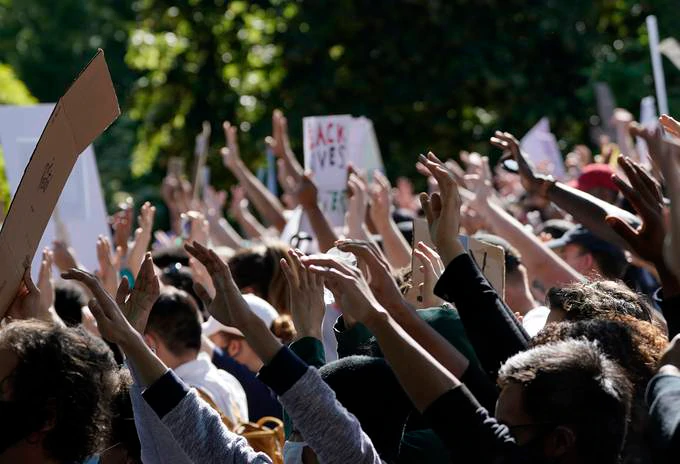
Protesters gather Monday in downtown Washington. (Drew Angerer/Getty Images)
The hashtag #DCblackout appeared to originate with an account with just three followers, and within hours, it generated half a million tweets, Craig Timberg, Elizabeth Dwoskin and Fenit Nirappil report. City officials confirmed there had been no communications blackout.
Twitter removed hundreds of “spammy accounts” during its investigation of the hashtag, Twitter spokesman Brandon Borrman said. “We’re taking action proactively on any coordinated attempts to disrupt the public conversation around this issue,” he said.
The hashtag appeared to gain early support from fake accounts, including several that normally tweet about Korean pop music, Darren Linvill, an assistant professor of communication at Clemson University who studies social media misinformation, told The Washington Post. But reactions to the hashtag disputing the accounts only further accelerated its popularity.
Twitter also removed an account linked to white-nationalist group Identity Evropa that pretended to represent a national “antifa” organization and pushed violent rhetoric about the protests, NBC News reports. President Trump has blamed antifa, a loose network of people opposed to fascism, for the violence without presenting specific public evidence.
The rapid-fire spread of the misinformation highlights Twitter’s ongoing difficulties with checking misinformation in real time and keeping it off its trending-topics tab. That could be particularly dangerous given the role social media has played in accelerating protests and police reaction, experts say.
A bipartisan group of lawmakers rolled out a bill to regulate contact-tracing apps in the hopes of encouraging trust in the technology.

Sen. Maria Cantwell (D-Wash.), the ranking Democrat on the Senate Commerce Committee. (Erin Scott/Bloomberg News)
The proposal, spearheaded by Sen. Maria Cantwell (D-Wash.), is designed to ensure that Americans can participate in contact tracing without sacrificing their personal data, Tony Romm reports.
The bill would require companies developing contact-tracing applications to work with public health authorities. It also requires the companies to obtain consent before they begin location tracking.
The bill, which would prohibit employers from discriminating against employees who refuse to install the tracking equipment, could guard against a growing trend of workplaces forcing employees into downloading apps — some of which have not been vetted by public health authorities. The bill would also prevent tech companies from using data for commercial purposes, as well as grant the federal government more power to penalize privacy abuses by companies.
But the bill could be stalled by the same disagreements that have scuttled past efforts to regulate privacy on Capitol Hill. Other lawmakers, including Sen. Roger Wicker (R-Miss.), have offered their own proposals in recent weeks.
TikTok will establish new diversity initiatives to address ongoing criticisms of discrimination against black creators.
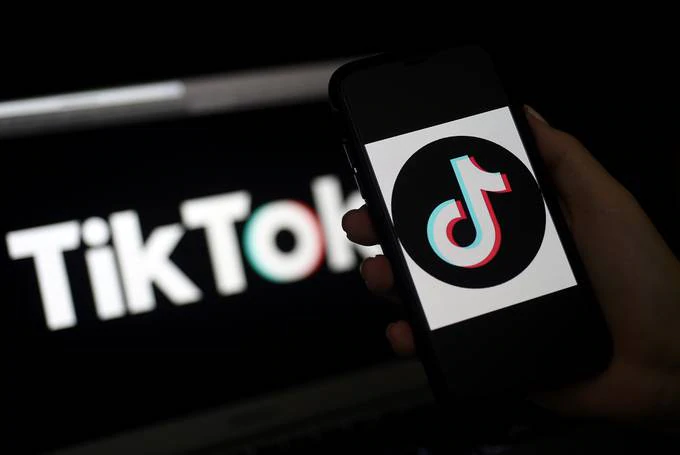
(Olivier Douliery/AFP/Getty Images)
The video app announced the plan on Monday, alongside a $1 million donation toward unspecified programs fighting “racial injustice and inequality.”
Black creators accused TikTok of taking down their videos and censoring content speaking out against racism, as CNN reported last month. Concerns intensified recently when videos with hashtags including #BlackLivesMatter and #GeorgeFloyd were temporarily shown having zero views. The company said the malfunction was a display issue that affected a number of hashtags.
“Nevertheless, we understand that many assumed this bug to be an intentional act to suppress the experiences and invalidate the emotions felt by the Black community,” Vanessa Pappas, TikTok U.S. general manager, and Kudzi Chikumbu, director of creator community, wrote in a statement Monday. “And we know we have work to do to regain and repair that trust.”
Other initiatives from the company will include investing in its technology and moderation process to make it more user-friendly, and engaging outside experts and organizations on issues of inclusion and diversity. It is similar to what Facebook and other social media companies have done to engage the civil rights community in light of ongoing criticism, often with mixed success.
Inside the industry
Sales of pepper spray and Black Lives Matter items are surging on Amazon.

An Amazon warehouse on Staten Island. (Angela Weiss/AFP/Getty Images)
Self-defense items, books on racial justice and shirts using the Black Lives Matter slogan topped several sales categories on Monday, Annie Palmer at CNBC reports.
One Black Lives Matter t-shirt that does not appear to be affiliated with any racial justice organizations skyrocketed from not registering in the Best Sellers rankings to No. 60, CNBC found. Some reviewers criticized the seller for profiting off civil unrest. (Amazon founder and chief executive Jeff Bezos owns The Washington Post.)
More industry news:
Trending

Teens are using their digital savvy to outwit educators and disrupt or dodge e-learning, leaving confused teachers in their wake. ‘It seemed like a legit technical issue.’
Wall Street Journal
Mentions
Daybook
- George Washington University’s Institute for Data, Democracy and Politics will host a virtual forum on the coronavirus and social media disinformation on June 16 at 10 a.m.
Before you log off
Seth Myers on Trump’s response to the Floyd protests:





